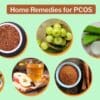Managing PCOD with Supplements: A Comprehensive Guide
Polycystic Ovary Syndrome (PCOS) is a common hormonal disorder that affects women of reproductive age. It is characterized by the presence of multiple cysts in the ovaries, irregular menstrual cycles, and high levels of male hormones. PCOS can lead to a range of health problems, including infertility, diabetes, and heart disease. While there is no cure for PCOS, there are several ways to manage its symptoms, including lifestyle changes, medication, and supplements.
In this article, we will explore the role of supplements in managing PCOS. We will discuss the most effective supplements for PCOS, their benefits, and how they work. We will also provide tips on how to choose the right supplements and how to incorporate them into your daily routine.
- Inositol
Inositol is a type of sugar that is naturally found in the body. It plays a crucial role in insulin signaling and glucose metabolism. Studies have shown that women with PCOS have lower levels of inositol in their bodies, which can lead to insulin resistance and other metabolic problems. Supplementing with inositol can help improve insulin sensitivity, regulate menstrual cycles, and reduce symptoms of PCOS.
- Vitamin D
Vitamin D is an essential nutrient that plays a vital role in bone health, immune function, and hormone regulation. Studies have shown that women with PCOS are more likely to have vitamin D deficiency, which can worsen insulin resistance and other metabolic problems. Supplementing with vitamin D can help improve insulin sensitivity, regulate menstrual cycles, and reduce inflammation.
- Omega-3 Fatty Acids
Omega-3 fatty acids are a type of healthy fat that is found in fish, nuts, and seeds. They play a crucial role in reducing inflammation, improving heart health, and regulating hormone levels. Studies have shown that supplementing with omega-3 fatty acids can help reduce insulin resistance, regulate menstrual cycles, and improve fertility in women with PCOS.
- Chromium
Chromium is a mineral that is essential for insulin signaling and glucose metabolism. Studies have shown that women with PCOS have lower levels of chromium in their bodies, which can lead to insulin resistance and other metabolic problems. Supplementing with chromium can help improve insulin sensitivity, regulate menstrual cycles, and reduce symptoms of PCOS.
- N-Acetyl Cysteine (NAC)
N-Acetyl Cysteine (NAC) is an amino acid that is known for its antioxidant properties. It plays a crucial role in reducing inflammation, improving insulin sensitivity, and regulating hormone levels. Studies have shown that supplementing with NAC can help improve menstrual regularity, reduce insulin resistance, and improve fertility in women with PCOS.
When choosing supplements for PCOS, it is important to choose high-quality products from reputable brands. Look for supplements that are specifically formulated for PCOS and contain the right dosage of active ingredients. It is also important to consult with a healthcare professional before starting any new supplement regimen.
In conclusion, supplements can be a valuable tool in managing PCOS symptoms. Inositol, vitamin D, omega-3 fatty acids, chromium, and N-Acetyl Cysteine are some of the most effective supplements for PCOS. By incorporating these supplements into your daily routine, you can improve insulin sensitivity, regulate menstrual cycles, and reduce symptoms of PCOS. To get started on your journey towards better health, download the Fitpaa app today and consult with our expert team of nutritionists, fitness coaches, and doctors.









